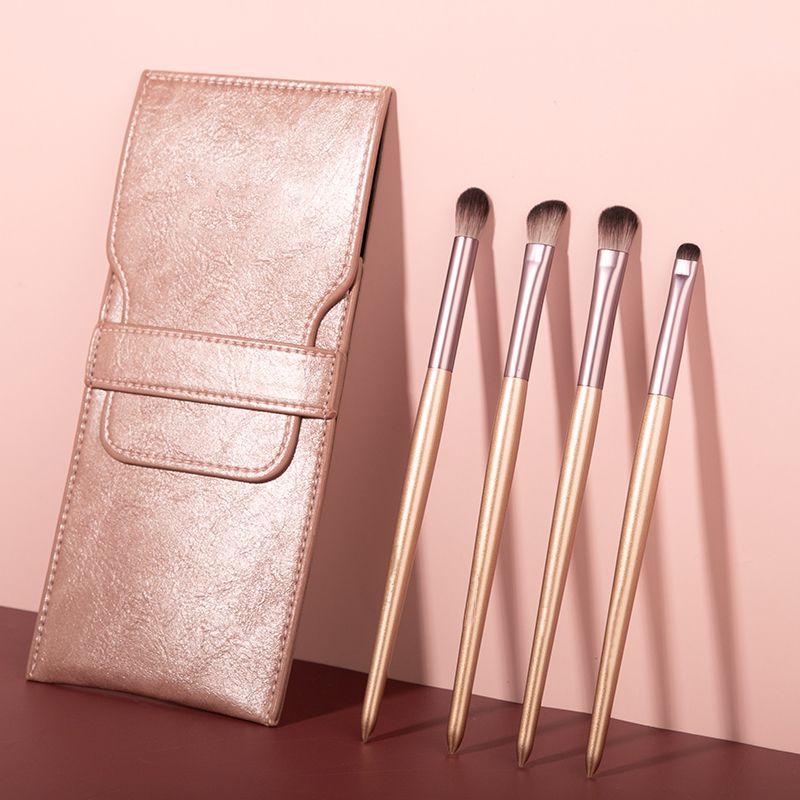Industry news
Middle Eastern Beauty Brands Launch Halal-Certified Bristle Brushes for Faith-Based Consumers
- 912 Views
- 2025-09-07 01:32:03
Middle Eastern Beauty Brands Lead the Charge with Halal-Certified Bristle Brushes for Faith-Driven Consumers
The Middle Eastern beauty market is experiencing a transformative shift, driven by a growing demand for products that align with both aesthetic goals and religious values. In recent months, regional beauty brands have emerged as pioneers in this space, launching halal-certified bristle brushes tailored specifically for faith-based consumers. This move not only addresses a longstanding gap in the market but also underscores the industry’s commitment to inclusivity and cultural sensitivity.
Halal certification in cosmetics extends far beyond ingredient lists—it encompasses the entire production lifecycle, from raw material sourcing to manufacturing processes. For bristle brushes, this means rigorous checks to ensure compliance with Islamic dietary and ethical laws. Traditional makeup brushes often use animal-derived bristles, such as pig hair (haram in Islam) or non-halal-certified animal fibers, which can alienate observant Muslim consumers. Middle Eastern brands are now reimagining brush technology to eliminate these concerns, focusing on synthetic fibers and ethically sourced materials that meet global halal standards set by bodies like the Islamic Food and Nutrition Council of America (IFANCA) or the Halal Certification Services (HCS).

Leading the charge are homegrown giants and emerging startups alike. Take, for example, Dubai-based brand Lumina Beauty, which recently unveiled its “PureBrush Collection.” The line features 12-piece brush sets with bristles made from plant-based synthetic fibers—nylon-6 and polyester blends—chosen for their softness, durability, and halal compliance. “Our R&D team spent 18 months testing materials to ensure the brushes perform as well as luxury animal-hair alternatives, without compromising on faith,” says Lumina’s product development head, Aisha Al-Mansoori. The brand also highlights its production facilities, which are certified halal by the UAE’s General Authority of Islamic Affairs and Endowments (GAIAE), ensuring no cross-contamination with non-halal products during manufacturing.
Another notable player is Riyadh-based Saffron Cosmetics, which took a different approach by introducing “HalalGroom,” a line of brushes using ethically sourced animal hair. The brand partners with local farms to source goat and camel hair from animals slaughtered according to Islamic law (zabiha), with strict documentation tracing the supply chain from farm to factory. “Some consumers prefer natural bristles for their superior blending ability,” explains Saffron’s founder, Omar Khalid. “By certifying our animal hair as halal, we’re offering choice without compromise.”
The demand for such products is rooted in a broader trend: the rise of “faith-based consumerism” in the Middle East. A 2023 report by Euromonitor International found that 78% of Muslim consumers in the GCC prioritize halal-certified beauty products, with 62% willing to pay a 10-15% premium for them. This shift is fueled by increased access to information—social media and beauty influencers have educated consumers on hidden non-halal ingredients, pushing brands to be more transparent.
Beyond compliance, these brushes are also raising the bar for performance. Synthetic fibers, once criticized for being too stiff, are now engineered with micro-tip technology to mimic the softness of natural hair. Lumina’s PureBrush, for instance, uses 0.05mm diameter fibers that pick up powder and cream products evenly, while Saffron’s HalalGroom brushes undergo a 5-step washing process with halal-certified detergents to ensure they’re free from allergens and residues.
The launch of these lines has already generated buzz. Pre-orders for Lumina’s PureBrush Collection sold out within 48 hours, and Saffron reports a 30% increase in website traffic since announcing HalalGroom. Industry experts predict this trend will expand beyond the Middle East, with brands eyeing export opportunities in Southeast Asia—a region with a Muslim population of over 600 million—and even Western markets with growing Muslim communities.
As Middle Eastern beauty brands continue to innovate, halal-certified bristle brushes are more than a niche product; they’re a statement of cultural pride and market foresight. By merging faith with functionality, these brands are not only winning over consumers but also setting a new global standard for inclusive beauty. In an industry often criticized for homogeneity, this movement proves that diversity—whether in ingredients, values, or design—drives true innovation.











